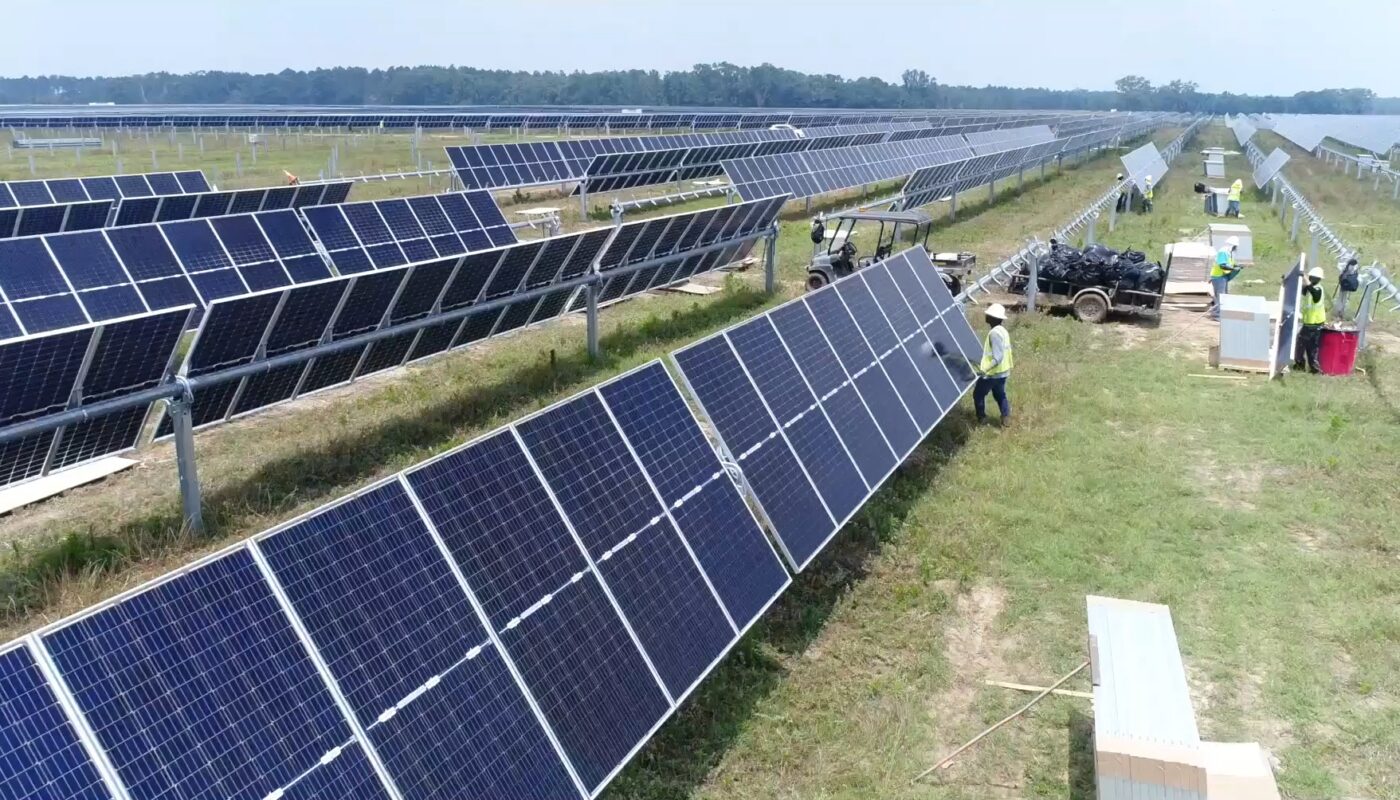A Tuscola, Michigan, solar project sparks a local dispute over farmland, ordinances, and state control. A case builds in Arbela Township as residents, local officials, and state law collide over solar farm development.
ARBELA TOWNSHIP, Mich. — June 8, 2025 — Plans to install a 170-megawatt commercial solar facility across more than 1,500 acres of farmland in southwest Tuscola County have ignited community resistance, revealed regulatory limitations, and set the stage for a showdown between local authority and state oversight.
The Birch Valley Solar Project, proposed by Ranger Power, a Chicago-based utility-scale developer, would be the first commercial solar farm in Arbela Township, a rural area of roughly 2,800 residents. The developer held an open house on May 28 at the Arbela Township Hall to present its plan, field questions, and display maps of the proposed facility.
The project would install solar panels on 923 fenced acres—with another 600 acres included as part of the total land parcels involved—across various properties situated near Bray, Barnes, Barkley, Millington, and Lewis roads, according to Tuscola Today reporting by Tom Gilchrist.
Township Opposition Clashes With Statewide Solar Zoning Law
While the developer continues advancing plans to apply for permits, opposition from some township officials and residents has been mounting.
Township Clerk Chelsea Sebert told Thumbnet.net reporters Mary Drier and Mike Kaufman she doubts the board of trustees will approve the project. She cited concerns about the project’s encroachment on prime farmland, and the fact that some residents would be entirely surrounded by solar panels. In addition, the township’s zoning ordinance caps utility-scale solar development to 4% of total township acreage—a threshold that this project would exceed.
If Arbela Township denies the permit, however, state law may override local authority. Under Public Act 233 of 2023, the Michigan Public Service Commission (MPSC) holds the final say on renewable energy developments, effectively removing zoning power from municipalities. This trend of state preemption, critics argue, favors developers and undermines community input.
“The state is showing a pattern of favoring large companies over the wishes of what townships want,” Sebert said, noting it’s likely the project will proceed regardless of local decisions.
Township Ordinance Sets Stringent Land Use, Setback, and Buffer Requirements For Birch Valley Solar Project
According to the ordinance passed by the Arbela Township Board in November 2024, commercial solar energy systems are allowed by special land use permit in agricultural and commercial districts. However, the ordinance imposes strict conditions, including:
- Mandatory landscape buffers with evergreen trees to block views from adjacent properties.
- Prohibitions against solar glare affecting neighbors or roadways.
- Limits on maximum panel height (25 feet) and sound levels (not to exceed 55 decibels at nonparticipating properties).
- Minimum setbacks of 300 feet from dwellings and 50 feet from roads or property lines.
- Requirements for fencing, emergency response plans, visual simulations, and decommissioning procedures.
The ordinance also specifies that no commercial solar energy systems shall cause soil erosion, allow for topsoil removal, or produce light emissions that interfere with air or roadway safety.
Developer Seeks to Emphasize Economic and Environmental Benefits
Ranger Power representatives say the Birch Valley project will provide clean, locally generated power while producing “significant environmental and economic benefits” for the township. Emails regarding the project can be sent to hope@rangerpower.com, the company notes in materials provided at the open house.
The project’s scale—170 MW—would place it among the state’s largest, just below the 200-megawatt Calhoun Solar project in southern Michigan, which powers roughly 40,000 homes, according to Invenergy.
The proposal also includes a host community agreement provision mandated by local ordinance, requiring the company to pay the township $2,000 per megawatt of installed capacity. At full build-out, that would net the township $340,000 annually for fire, infrastructure, or safety expenses.
Next Steps: Permitting, Hearings, and Likely State Intervention
Next steps include permit applications, environmental impact assessments, and a public hearing before the Arbela Township Planning Commission. Yet the ultimate authority may reside in Lansing.
According to Section G of the Arbela ordinance, solar developers must notify local officials 60 days before submitting plans to the state, and the township has 30 days to declare its ordinance “compatible” with state standards. Whether Arbela’s ordinance meets this test remains to be seen—but the township clearly intends to enforce its local zoning restrictions.
If rejected locally, the developer may appeal to the MPSC, which under MCL 460.1226 can approve projects deemed to meet statewide renewable energy goals.
Read More Interesting Feature Stories From ThumbWind
- Michigan Feature News Stories – Unveiling the diverse and vibrant people, captivating places, and remarkable events that come together to make the Great Lake State unique.
- Strange Political News – A sarcastic take on official news from around the U.S., exploring the absurdities that often arise in the political landscape while providing a humorous perspective on current events and highlighting the quirks of politicians and policies.
- Michigan Hometown News – News and events from Michigan’s Upper Thumb region worth knowing, including local stories, impactful interviews, and updates on community happenings that shape the culture and lifestyle of the area.
Your Turn – Like This, or Hate it – We Want To Hear From You
Please offer an insightful and thoughtful comment. We review each response. Follow us to have other feature stories fill up your email box, or check us out at ThumbWind News .




